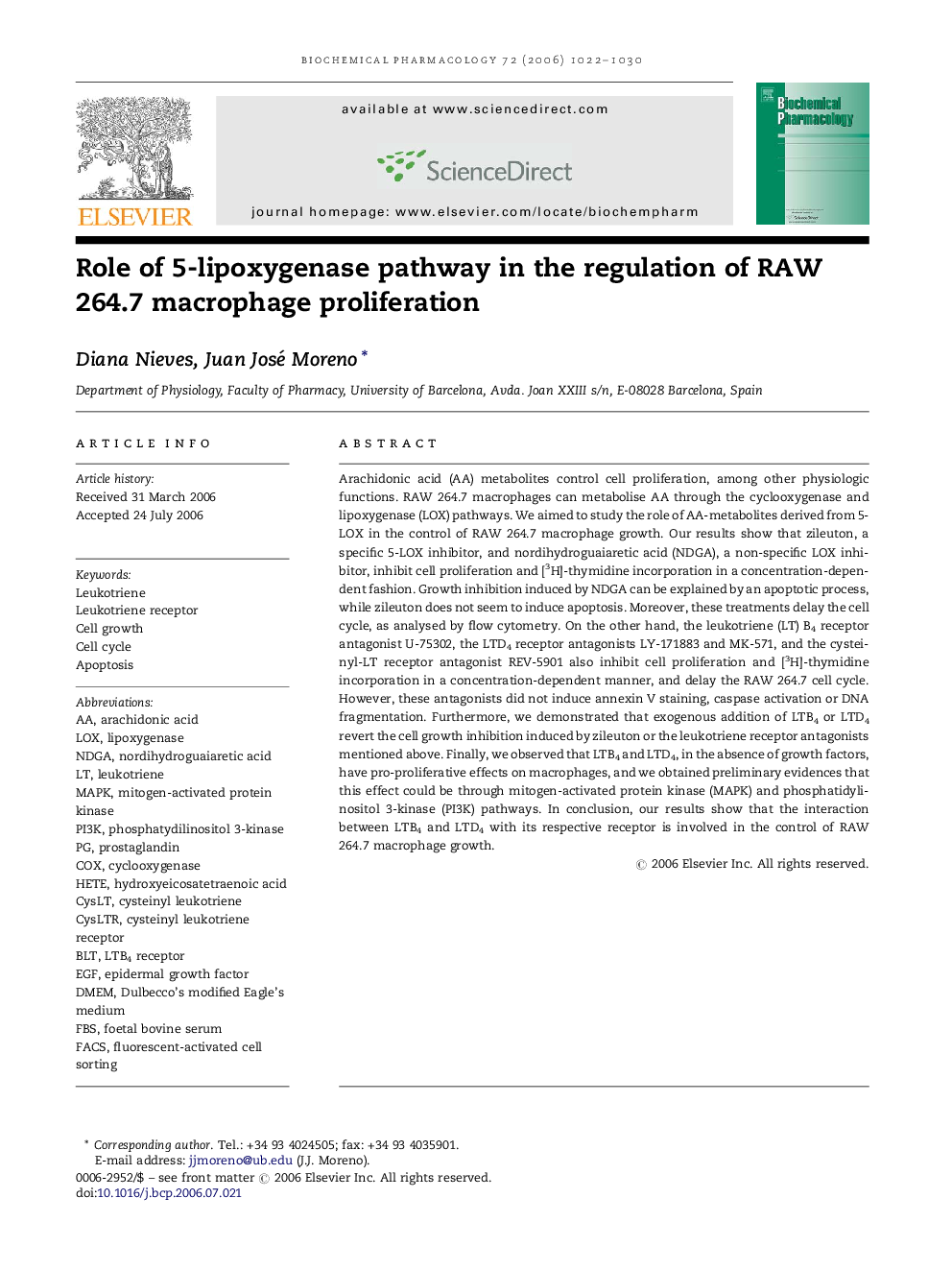| Article ID | Journal | Published Year | Pages | File Type |
|---|---|---|---|---|
| 2515408 | Biochemical Pharmacology | 2006 | 9 Pages |
Arachidonic acid (AA) metabolites control cell proliferation, among other physiologic functions. RAW 264.7 macrophages can metabolise AA through the cyclooxygenase and lipoxygenase (LOX) pathways. We aimed to study the role of AA-metabolites derived from 5-LOX in the control of RAW 264.7 macrophage growth. Our results show that zileuton, a specific 5-LOX inhibitor, and nordihydroguaiaretic acid (NDGA), a non-specific LOX inhibitor, inhibit cell proliferation and [3H]-thymidine incorporation in a concentration-dependent fashion. Growth inhibition induced by NDGA can be explained by an apoptotic process, while zileuton does not seem to induce apoptosis. Moreover, these treatments delay the cell cycle, as analysed by flow cytometry. On the other hand, the leukotriene (LT) B4 receptor antagonist U-75302, the LTD4 receptor antagonists LY-171883 and MK-571, and the cysteinyl-LT receptor antagonist REV-5901 also inhibit cell proliferation and [3H]-thymidine incorporation in a concentration-dependent manner, and delay the RAW 264.7 cell cycle. However, these antagonists did not induce annexin V staining, caspase activation or DNA fragmentation. Furthermore, we demonstrated that exogenous addition of LTB4 or LTD4 revert the cell growth inhibition induced by zileuton or the leukotriene receptor antagonists mentioned above. Finally, we observed that LTB4 and LTD4, in the absence of growth factors, have pro-proliferative effects on macrophages, and we obtained preliminary evidences that this effect could be through mitogen-activated protein kinase (MAPK) and phosphatidylinositol 3-kinase (PI3K) pathways. In conclusion, our results show that the interaction between LTB4 and LTD4 with its respective receptor is involved in the control of RAW 264.7 macrophage growth.
